UNIMAS Hosts Circular Economy Awareness Day : A Vision for a Sustainable and Regenerative Future
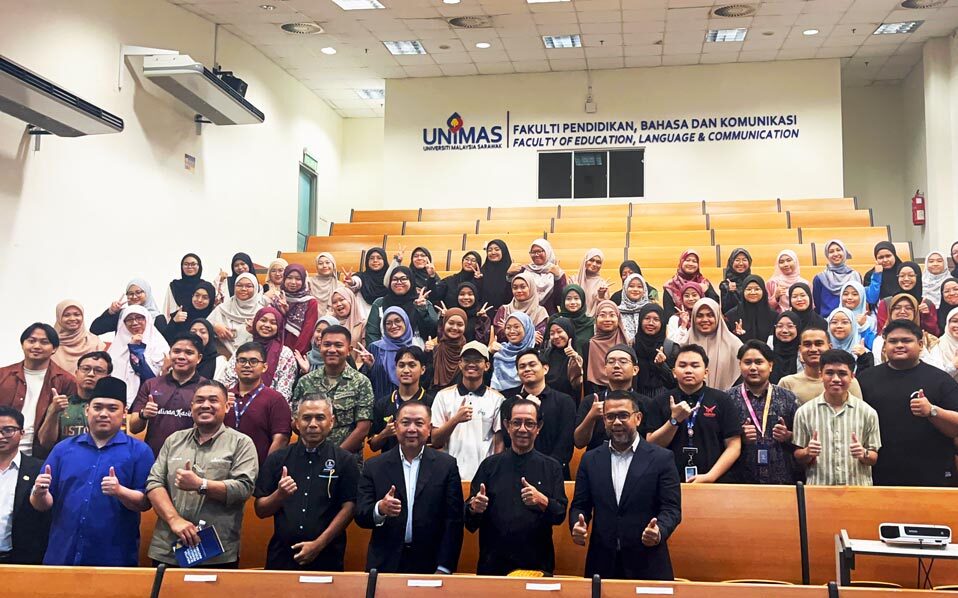
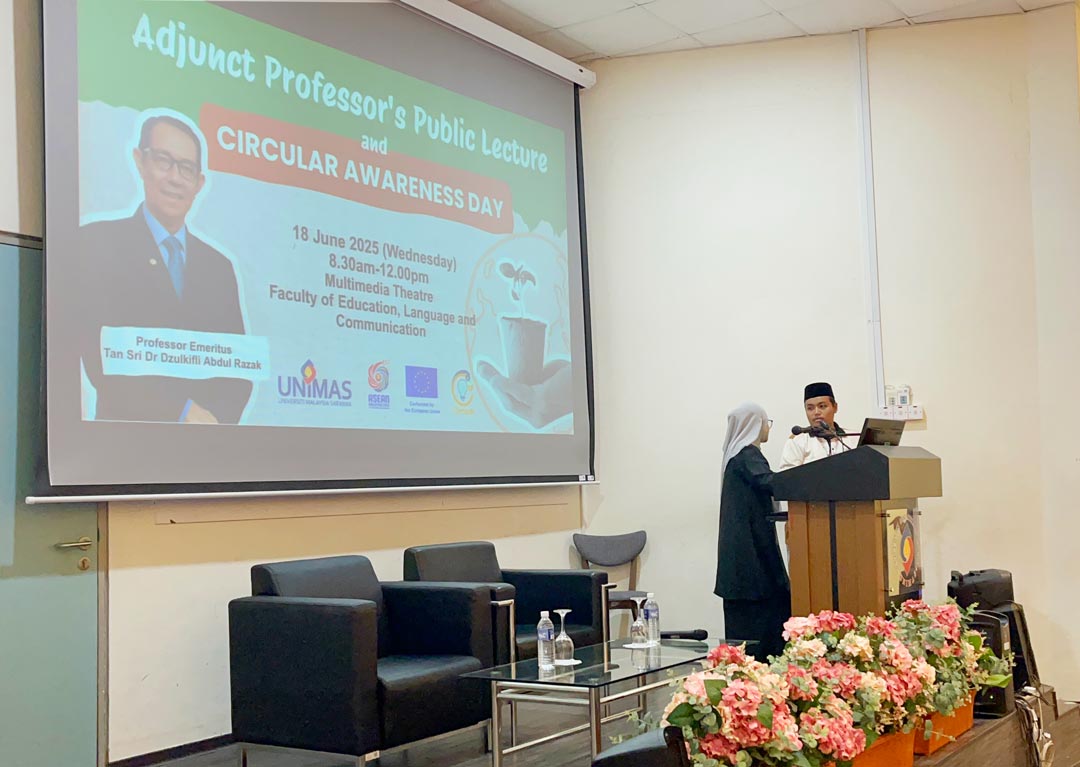
Universiti Malaysia Sarawak (UNIMAS) proudly hosted the Circular Economy Awareness Day on 18 June 2025, marking a significant step in promoting sustainable and regenerative economic practices in Sarawak. The event brought together academia, policymakers, local authorities, students, and the public in a meaningful dialogue on the transition towards a circular economy.
Held at the UNIMAS campus, the one-day event served as a dynamic platform to cultivate awareness, share ideas, and showcase innovative initiatives related to the circular economy—a model that focuses on designing out waste, keeping products and materials in use, and regenerating natural systems.
The highlight of the event was the Keynote Forum, featuring Yang Berbahagia Prof. Emeritus Tan Sri Dzulkifli Abdul Razak, one of Malaysia’s most distinguished thought leaders in education and sustainability. He previously served as the Vice-Chancellor of Universiti Sains Malaysia, Universiti Sains Islam Malaysia, and Rector of the International Islamic University Malaysia. His keynote address, titled “Circular Economy: The Way Forward”, captivated the audience with a forward-looking perspective on the urgency of adopting circular practices to combat environmental degradation, resource scarcity, and economic inefficiencies. He emphasized the need for a paradigm shift in how institutions, industries, and individuals approach consumption, production, and environmental responsibility.
The keynote session was attended by over 100 UNIMAS students and 20 academicians, who engaged in a lively and insightful forum, reflecting the growing interest among the younger generation in sustainable development and green innovation.
Also attending the event was Dato’ Dr. Haji Azhar Ahmad, Chief Executive Officer of the Leadership Institute of Sarawak Civil Service, who commended UNIMAS for championing sustainability efforts in the state. In his remarks, Dato’ Dr. Haji Azhar highlighted the pivotal role of leadership and policy in driving systemic change. He called for integrated efforts from government agencies, educational institutions, and communities to embrace circular economy strategies as part of Sarawak’s development vision.
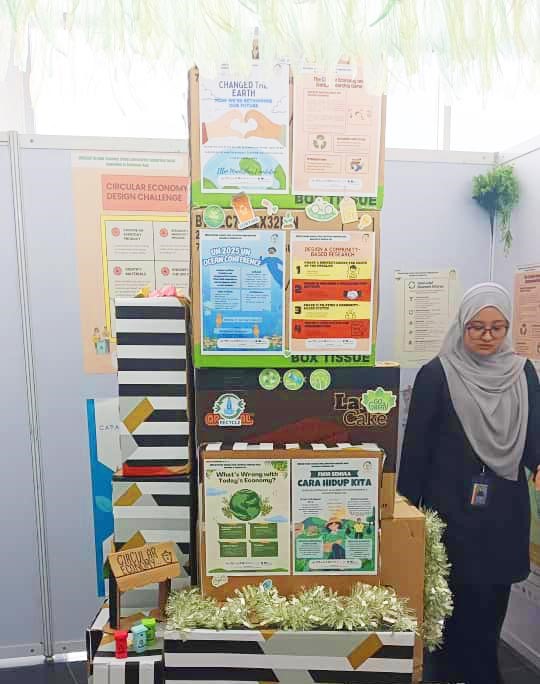
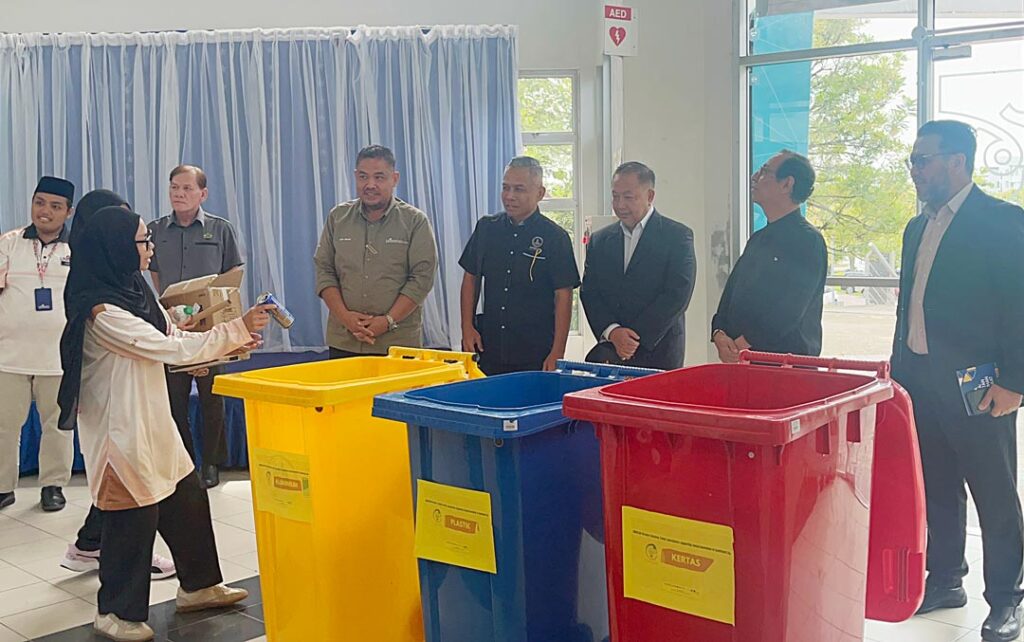
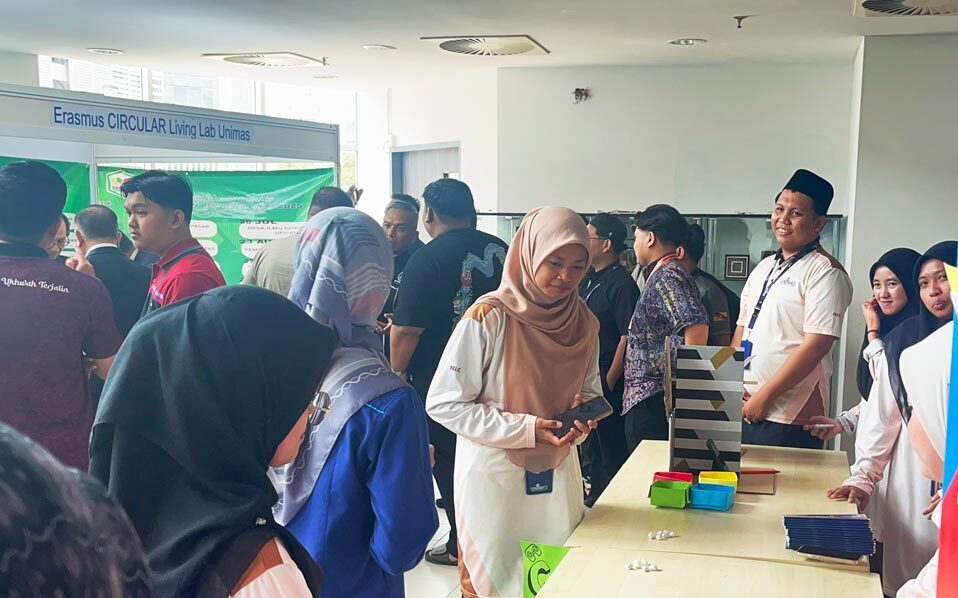
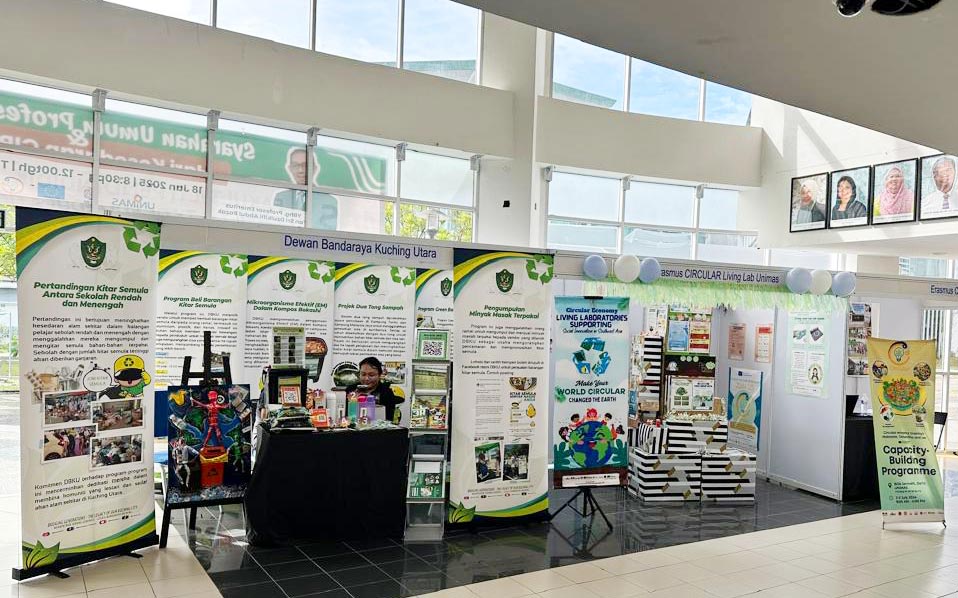
To further enhance engagement, an exhibition and showcase area was set up, featuring booths from key local stakeholders and partners, including:
Dewan Bandaraya Kuching Utara (DBKU)
Majlis Perbandaran Kota Samarahan (MPKS)
UNIMAS Circular Economy Research and Action Teams
These booths displayed a variety of initiatives ranging from sustainable urban planning, community-based recycling programs, resource efficiency innovations, and academic research dedicated to the circular economy. The exhibition not only created an informative space for visitors to learn about current efforts but also inspired dialogue on how public institutions and academia can co-create solutions for environmental challenges.
The Circular Economy Awareness Day forms part of UNIMAS’s larger commitment to environmental sustainability and responsible innovation. It aligns closely with Malaysia’s national aspirations under the Sustainable Development Goals (SDGs) and the Post-COVID[1]19 Development Strategy (PCDS) 2030 of Sarawak, which emphasize green growth, climate resilience, and inclusive prosperity.
In his opening remarks, the Project Leader of the UNIMAS-ERASMUS team, Associate Professor Dr Zaimuariffudin Shukri Nordin reaffirmed the university’s role as a catalyst for sustainable transformation in the region. “At UNIMAS, we believe that higher education institutions must lead by example—not only in research and teaching but also in how we collaborate with society to shape a more equitable, resilient, and ircular future.”
The event was open to all, including students, academics, government officials, industry professionals, and members of the public, and succeeded in fostering greater awareness, collaboration, and momentum toward a circular economy in Sarawak.
